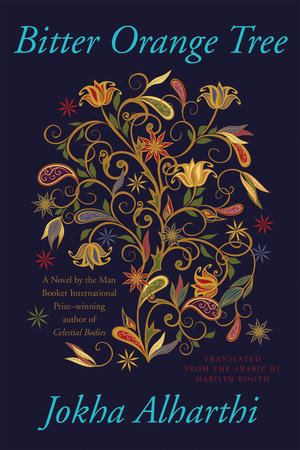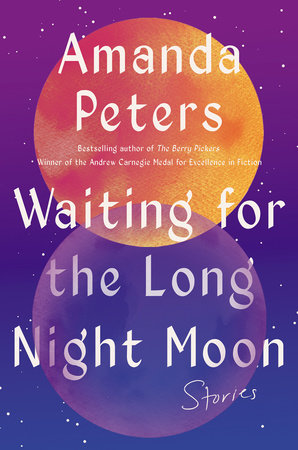
Celestial Bodies
Jokha Alharthi & Marilyn Booth
On Sale: 10/08/2019 | $16.95
9781948226943 | Paperback 5-1/2 x 8-1/4 | 256 pages Buy it Now
Book Description
This winner of the 2019 Man Booker International Prize and national bestseller is “an innovative reimagining of the family saga . . . Celestial Bodies is itself a treasure house: an intricately calibrated chaos of familial orbits and conjunctions, of the gravitational pull of secrets” (The New York Times Book Review).
In the village of al-Awafi in Oman, we encounter three sisters: Mayya, who marries after a heartbreak; Asma, who marries from a sense of duty; and Khawla, who chooses to refuse all offers and await a reunion with the man she loves, who has emigrated to Canada.
These three women and their families, their losses and loves, unspool beautifully against a backdrop of a rapidly changing Oman, a country evolving from a traditional, slave-owning society into its complex present. Through the sisters, we glimpse a society in all its degrees, from the very poorest of the local slave families to those making money through the advent of new wealth.
The first novel originally written in Arabic to ever win the Man Booker International Prize, and the first book by a female Omani author to be translated into English, Celestial Bodies marks the arrival in the United States of a major international writer.
Praise For This Book
A Kirkus Reviews Best Book of the Year in Fiction"An inventive multigenerational tale spanning from the end of the 19th century to the early years of the new millennium, this is the first novel by an Omani woman to be translated into English. It’s also the first Arab novel to win the International Booker Prize." ―The New York Times Book Review, Editors' Choice
"The form’s remarkable adaptability is on brilliant display in Celestial Bodies (Catapult), a searching work of fiction by Jokha Alharthi, an Omani writer and academic; the English translation, by Marilyn Booth, won this year’s International Booker Prize . . . The novel moves back and forth between the generations very flexibly, often in the course of a single page or even paragraph, owing to Alharthi’s deft management of time shifts. I like to imagine Alharthi, as a graduate student in Edinburgh, encountering what Muriel Spark did with flash-forwards in her great Edinburgh novel about the often unhappy lives of girls and women, The Prime of Miss Jean Brodie . . . Within all the chapters, the stories float like this, lightly tethered to what the French call récit―the moment in which the story is being told, the narrative present. The result is a beautifully wavering, always mobile set of temporalities, the way starlight seems to flicker when we gaze at distant and nearer celestial bodies. But the procedure is more radical than Muriel Spark’s, because the tether itself is moving . . . Celestial Bodies, written from within a largely poetic tradition by a woman who is a scholar of classical Arabic poetry, seems to break free of narration as it is commonly understood in Western fictional literature. The leaps and swerves seem closer to poetry or fable or song than to the novel as such . . . The form speaks eloquently. Indeed, the great pleasure of reading Celestial Bodies is witnessing a novel argue, through the achieved perfection of its form, for a kind of inquiry that only the novel can really conduct. The ability to move freely through time, the privileged access to the wounded privacies of many characters, the striking diversity of human beings across a relatively narrow canvas, the shock waves as one generation heaves, like tectonic plates, against another, the secrets and lapses and repressions, at once intimate and historical, the power, indeed, of an investigation that is always political and always intimate―here is the novel being supremely itself, proving itself up to the job by changing not its terms of employment but the shape of the task." ―James Wood, The New Yorker
"In her novel Celestial Bodies, the Omani author Jokha Alharthi inhabits this liminal space between memory and forgetting: the dark tension between the stories we tell and the stories we know . . . Spanning several generations, from the final decades of the 19th century to the early years of the new millennium, it also marks an innovative reimagining of the family saga. Alharthi avoids the languid ease of chronology in favor of dozens of taut character studies, often no more than a page or two . . . These vignettes are sharp-eyed, sharp-edged and carefully deployed in a multigenerational jigsaw that’s as evasive as it is evocative . . . Booth’s translation honors the elliptical rhythms of Arabic and the language’s rich literary heritage. She imbues the book’s numerous poetic extracts with lyricism and devotedly preserves the rhymes and cadences of its proverbs. ('The feet walk fast for the loving heart’s sake, but when you feel no longing, your feet drag and ache.') Yet there is no doubt that this is a contemporary novel, insistent and alive . . . Celestial Bodies is itself a treasure house: an intricately calibrated chaos of familial orbits and conjunctions, of the gravitational pull of secrets." ―Beejay Silcox, The New York Times Book Review
"Arab women, therefore, face twin obstacles: the West’s own gender biases, and the reductive narrative of the Arab woman. This is why it was such a victory when the International Booker Prize jury chose an Arab novel―one written by a woman―to receive the award for the first time in the prize’s history. The Omani novelist Jokha al-Harthi’s breathtaking, layered, multigenerational novel Celestial Bodies, which was beautifully translated into English, follows the lives of three sisters from a small village at a time of rapid social and economic change in Oman. The tale is replete with history, poetry, and philosophy, but also slavery, broken marriages, passion, and not-so-secret lovers." ―Kim Gattas, The Atlantic
"Bright and illuminating." ―Sam Sacks, The Wall Street Journal
"Rich, dense . . . The variety of perspectives is effective in offering a window into a country that few Western readers will know intimately . . . Celestial Bodies is strongest in its exploration of how the changes in Oman affect women: within one generation, they are exposed to ideas from abroad and start moving away from cloistered, rural life. But Alharthi . . . pushes past stereotypical narratives of Muslim women defying patriarchy, instead illustrating the difficulties of balancing tradition and newfound freedoms. It’s a tale that perhaps could have been written only in a strange new place itself." ―Naina Bajekal, Time















